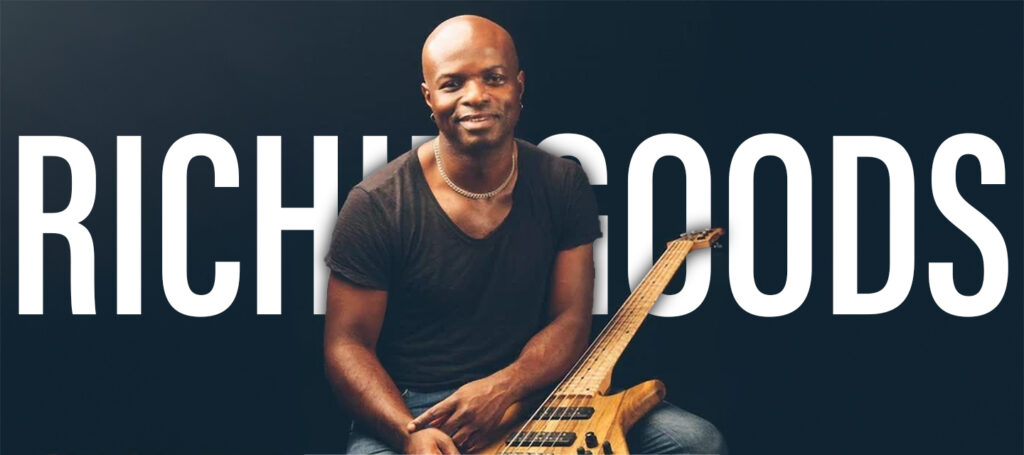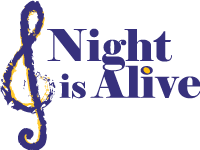
Happy Feature Friday! This week we’re highlighting bassist Richie Goods as we gear up for his show at The Carlyle room in DC with vibraphonist Chien Chien Lu. They are playing music from their album Connected which speaks about our divided society and how we all need to come together.
Check out the discussion with Richie below regarding Unity in our society. With everything going on in the world today, unity is needed now more than ever.
Richie Goods: My whole life has been about unifying people. It’s always bothered me ever since I was a little kid that people were so divided. I went to a black baptist church which I love, but I just didn’t understand how white people who were supposed to believe the same thing, went to a different church… It’s cool to see the effects of our work because at our shows, no matter where we play, it’s always pretty multicultural.
Kira Goidel: I think that’s great. When I was reading Lydia Liebman’s review (of the album) she mentions that you wanted to bring people together and not drive people apart. I think when you are trying to make music today, having something to say in regards to connection and unity is really impactful.
KG: What are some ways you stay connected and grounded within yourself in terms of self care rituals and things that you do to promote self love?
RG: That’s an interesting question. I definitely think that’s important. Balance for me as much as I love music, and sometimes I can do it 24/7, I need some balance. I need another outlet. Sports has always been a big part of my life. I’m very athletic and I play tennis as much as possible. Usually a few days a week.
KG: That’s so great!
RG: Sometimes I even take my tennis racquet on the road and find people to play tennis with. I used to play basketball and compete on rollerblades and all kind of stuff – Baseball and football. That’s kind of how I stay connected to myself doing something other than music.
KG: It’s important to have things outside of music to achieve balance which could help you even more in your musical endeavors.
RG: It definitely does. Even within music, I do a lot of production. I did all of the production on all of my records and also Chin Chin’s records. I used to do a lot of R&B stuff and hip hop and pop music, so- sometimes I just have fun working in the studio.
Most of the time with music I’m doing things for money. It’s fun sometimes to do stuff because I think I could come up with something cool. Playing my bass with no purpose, just to enjoy playing my bass or playing the piano, or producing a track for someone or myself to come up with something really cool for no reason at all.
KG: …and do you feel like that has helped your jazz playing even more?
RG: Oh Definitely. I really believe that everything works together, nothing is really separate. Even when I think about my career, the way I play music and my records, it’s a culmination of my whole life. The music I listened to as a kid – coming from my mom, grandparents, my aunts, my older sisters and my friends in my neighborhood- it was a lot of different styles of music.
KG: In Lydia Liebman’s review of Connected she states, “The pair cites their shared love of groovy music as the impetus of their bonafide creative connection.” I’m wondering if you could expand on this concept of groove. What does groove mean to you and how do you think it promotes connection within others, especially non musicians?
RG: Thank you, I think that’s a cool question. In finding my voice in all these years, you know I came up on the jazz scene playing with Mulgrew Miller and a lot of straight ahead musicians – My whole life and career has been about groove. I’ve always believed it’s the number one most important thing in any music – Even in classical music.
When I say groove, it’s like the feel. There is a certain way different music moves and it’s about the rhythm. And so, all the music I grew up with, it grooved really hard. In jazz, swing is the groove like back in the day. It was about how hard you were swinging and I wanted to swing as hard as I can.
But now, the music I’m doing is more of a funk groove. And people always joke about me that whatever song I play, I find the funk in it! Somehow I’m gonna make it funky. That’s become my thing. When I’m playing jazz, I somehow find a groove whether I’m playing acoustic bass or electric bass. That’s very important to me and I think it’s infectious to people. Sometimes the layman doesn’t know exactly why they’re liking a song. Why is their head moving? Why do they want to dance? I think part of it is the groove.
That’s why we have so many fans from different backgrounds. We have the hardcore jazz fans that support us, but we also have a whole new group of fans that don’t really listen to jazz. A lot of Chien Chien Lu’s fans are classical people and a lot are Asian people who have never listened to jazz. I think a lot of it has to do with the groove.
KG: That’s a really great point. A non musician may not know why they like a song but if they can bop their head, it’s almost an unconscious liking to the song. They might not even know why.
Listen to Richie Goods and Chien Chien Lu’s album Connected out on all streaming platforms. Join us for next week’s feature as we dive deeper into Richie’s career and thoughts about modern jazz education.
